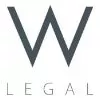Summary
On 17 March, 2014, the EU took the unprecedented step of announcing a travel ban and asset freeze against a number of Russian and Ukrainian nationals (known as designated persons). These sanctions complement U.S. sanctions, also stepped up today.
The designated persons are as follows:
- Sergey Valeryevich Aksyonov
- Vladimir Andreevich Konstantinov
- Rustam Ilmirovich Temirgaliev
- Deniz Valentinovich Berezovskiy
- Aleksei Mikhailovich Chaliy
- Pyotr Anatoliyovych Zima
- Yuriy Zherebtsov
- Sergey Pavlovych Tsekov
- Ozerov, Viktor Alekseevich
- Dzhabarov, Vladimir Michailovich
- Klishas, Andrei Aleksandrovich
- Ryzhkov, Nikolai Ivanovich
- Bushmin, Evgeni Viktorovich
- Totoonov, Aleksandr Borisovich
- Panteleev, Oleg Evgenevich
- Mironov, Sergei Mikhailovich
- Zheleznyak, Sergei Vladimirovich
- Slutski, Leonid Eduardovich
- Vitko, Aleksandr Viktorovich
- Sidorov, Anatoliy Alekseevich
- Galkin, Aleksandr
The number of individuals impacted today by the EU is very limited although further designations may well be announced over the coming days and weeks. It may be that the limited designations in terms of both "quality and quantity" results from the EU member states being unable to agree on the suitable level of a response. However, it is likely that the crisis is yet to fully manifest itself and that further measures will follow very soon.
Your business must be prepared to understand what the EU sanctions mean in practice.
Crucial Checks You Must Make Now
Crucially, you should check not only whether you have dealings with any designated person but also whether you have dealings with any entity which may be owned or controlled by those designated persons. It may be that a designated person has significant ownership interests in companies which could be incorporated anywhere in the world. If so, you must check before you have dealings with such entity, for example supplying goods or services to them or purchasing goods or services from them.
Who In The UK Must Comply With The EU Sanctions?
All individuals (irrespective of their nationality) and all legal entities (whether incorporated or established under UK law or under the law of any other jurisdiction) who are within the UK's territory.
Any British national or British legal entity established or incorporated under UK law whose activities are conducted outside the UK's territory must also comply.
Do Subsidiaries Of UK Companies Outside The EU Need To Comply With The Sanctions?
The EU sanctions announced today do not apply to subsidiaries operating wholly outside the UK and which are not British legal entities established or incorporated under UK law.
If the subsidiary is incorporated under an EU law, it will remain subject to the EU Regulation.
If it is incorporated under the laws of a non-EU country, is outside the territory of the EU, and does not do business in the EU, it will not be subject to EU sanctions even though its parent company is. However, there may be exposures for the parent company if, for example, it passes funds or goods to the non-EU subsidiary, which it knows or suspects will be passed on to a designated person.
Penalties
Any person guilty of an offence shall be liable on conviction to imprisonment and/or a fine. The maximum term of imprisonment is currently between two years and five years in most EU jurisdictions for breaches of EU sanctions regulations.
Where any corporate body is guilty of an offence and that offence is proved to have been committed with the consent or connivance of, or to be attributable to any neglect on the part of, any director, manager, secretary or other similar officer of the body corporate, or any person who was purporting to act in any such capacity, that person as well as the body corporate is guilty of that offence and is liable to be proceeded against and punished accordingly.
What Is An Asset Freeze?
An asset freeze comprises two elements:
- A prohibition on dealing with the funds or economic resources belonging to or owned, held or controlled by a designated person, and
- A prohibition on making funds or economic resources available, directly or indirectly, to, or for the benefit of, a designated person.
Whar Are Funds And Economic Resources?
Funds includes financial assets and benefits of every kind, including cash, cheques, money orders and other payment instruments as well as deposits, securities and other financial assets. Economic resources includes assets of every kind (both tangible and intangible) which may be used to obtain funds.
Can An EU National Or Entity Make Funds Available To A Designated Person?
No - it is a criminal offence to knowingly – or with reasonable cause to suspect – make funds available, directly or indirectly, to a designated person. Making funds indirectly available to a designated person would involve the funds being routed via a third party. So, for example, it would be a criminal offence to give funds to a designated person's representative knowing or suspecting that some or all of the funds will be given to the designated person.
Can An EU National Or Entity Make Economic Resources Available To A Designated Person?
It is a criminal offence to make economic resources available, directly or indirectly, to a designated person knowing or suspecting that the designated person is likely to exchange them for or use them to generate funds, goods or services. It is not, however, prohibited for someone to make economic resources available to a designated person for their everyday 'non-business' use, where such use will not result in the designated person generating funds, goods or services.
Can An EU National Or Entity Make Funds Available For The Benefit Of A Designated Person?
It is a criminal offence for a person to knowingly, or with reasonable cause to suspect they are doing so, make funds available to a third party in circumstances where a designated person thereby obtains or is able to obtain a significant financial benefit.
The aim of this prohibition is to prevent designated persons having access to significant additional funds because third parties make payments which the designated person would otherwise have to make. It is not intended to prohibit all payments to non-designated third parties which may benefit a designated person, but only those where there is a "significant financial benefit".
So, for example, where a person settles a debt owed by a designated person to a third party, that person has allowed the designated person to receive a financial benefit (as the designated person no longer has to pay the debt). Whether this benefit is significant or not will depend on the facts of the case, taking account, for example, of the income and assets of the designated person and the size of the debt.
The definition of "financial benefit" is broad. It includes the discharge of a financial obligation (a debt, commitment or liability) for which the designated person is wholly or partly responsible. A designated person would be likely to obtain a significant financial benefit if a third party paid the household bills of a designated person, such as rent or mortgage, utility bills, or met the cost of regular shopping where the designated person would otherwise be meeting or contributing to these, however there is no set threshold at which a financial benefit is considered "significant": it will depend on the facts of each case.
Can An EU National Or Entity Make An Economic Resource Available For The Benefit Of A Designated Person?
The prohibition makes it a criminal offence for a person to knowingly, or with reasonable cause to suspect they are doing so, make economic resources available to a third party in circumstances where a designated person obtains or is able to obtain a significant financial benefit.
The aim of this prohibition is to prevent designated persons gaining access to additional funds through the provision of economic resources to others. It is not prohibited for someone to make economic resources available for the benefit of a designated person unless the designated person obtains a significant financial benefit. So, for example, if someone lent their car to a member of the designated person's family, for the purpose of driving the designated person as a passenger this would clearly be for the benefit of the designated person. However, this would only be prohibited if the designated person obtained a significant financial benefit from being so driven.
Should The Assets Of A Person Owned Or Controlled By A Designated Person Be Frozen?
There may be cases where the assets of persons who are not expressly listed as a designated person may nevertheless have to be treated as frozen. This is because the EU sanctions regime may target a list of named persons and other, unnamed, persons that are, for example, owned or controlled by the named persons. There is no absolute legal rule as to when an entity is owned or controlled by another. The matter must be subject to a case-by-case evaluation, taking into account the degree to which the entity concerned is owned or controlled. But it is helpful to consider whether the designated person:
- holds a majority of the voting rights in the unnamed person; or
- is a member (i.e. shareholder) of it and has the right to appoint or remove a majority of its board; or
- has the right to exercise dominant influence over it by virtue of provisions contained in the subsidiary undertaking's articles of association or a control contract; or
- is a member of it and controls alone, under an agreement with other shareholders or members, a majority of its voting rights; or
- has the power to exercise, or actually exercises, a dominant influence or control over it or both of them are managed on a unified basis.
Can A Bank Or Business Tell Its Customer If The Account Is To Be Frozen?
Businesses and banks are not legally required to advise customers that their account has been frozen. The listing authority will have made efforts to inform the designated person that they have been designated and what that means for them. The Consolidated List is a public document and there is no prohibition on discussing a customer's listing with them (as compared to the prohibitions relating to 'tipping off' under the anti-money laundering regime).
It will generally be good practice to tell the customers involved that they are subject to financial sanctions such as an asset freeze, and to explain the effect of any restrictions to them, and how to contact the Financial Sanctions Team at HM Treasury.
What Should A Bank Do If It Discovers It Holds An Account For A Designated Person
You must freeze (i.e. refrain from dealing with) their assets and report details of the assets to HM Treasury.
Reports of frozen accounts should include the following details:
- The full name of the account holder or holders, including how the name is presented on any debit card;
- Details of the account holding institution – the name and address of the bank etc, and its FCA reference number where applicable;
- The account sort code and number;
- Currency in which the account is maintained;
- The type of account (current, deposit, etc) and whether it is a primary account or sub-account; and
- The latest account balance/s.
When discussing matters with your customer you should still be aware that it is a criminal offence to circumvent, or enable or facilitate circumvention of sanctions.
The content of this article is intended to provide a general guide to the subject matter. Specialist advice should be sought about your specific circumstances.

